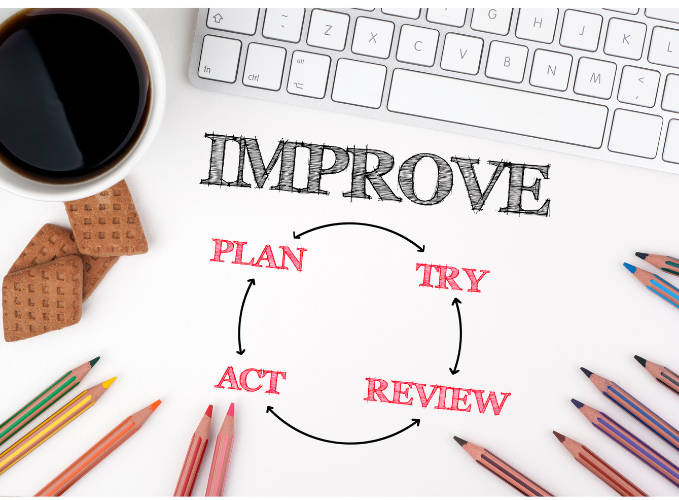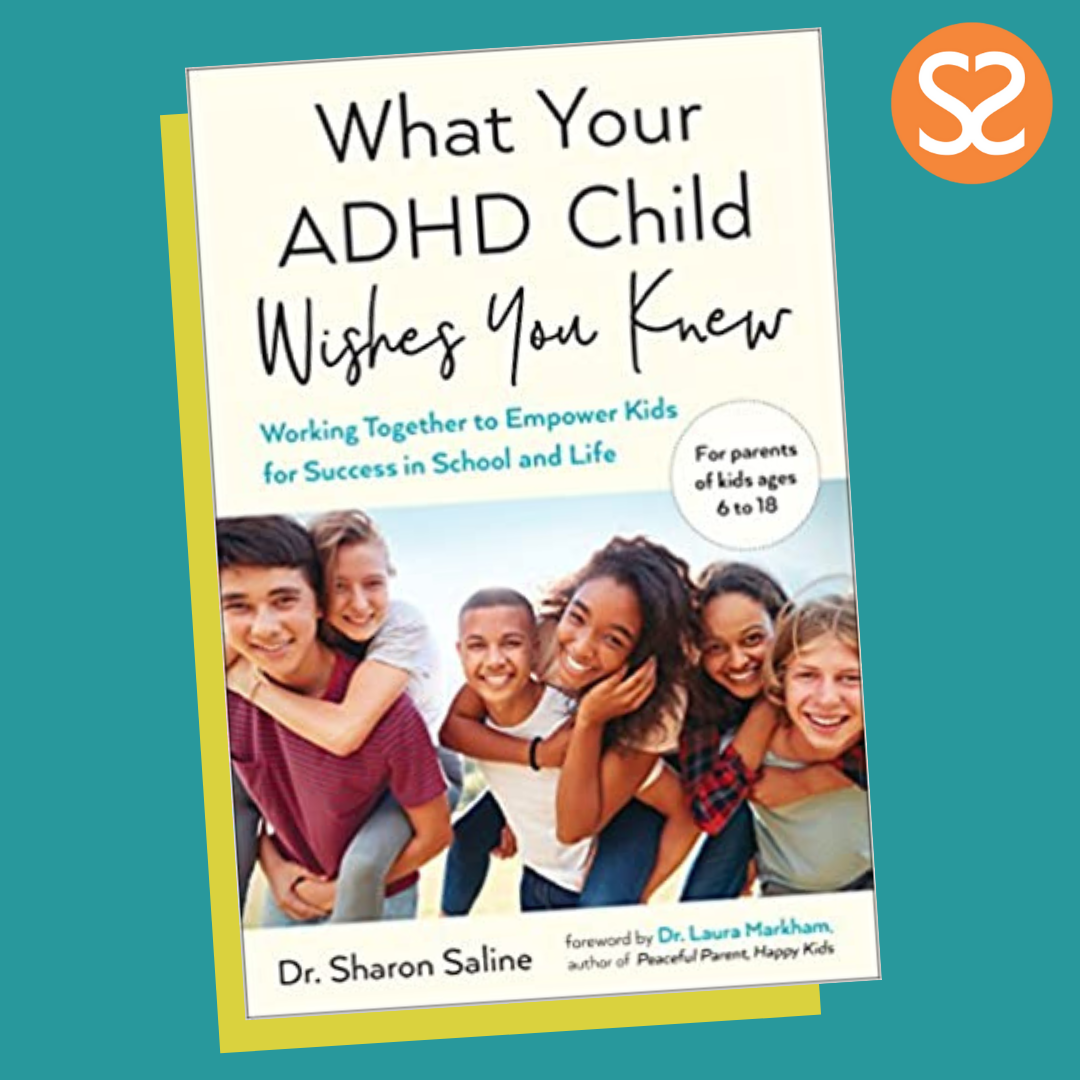Dr. Saline’s article “You Are Worthy of Self-Compassion: How to Break the Habit of Internalized Criticism” was featured in The Normangee Star Newspaper! It’s featured in Volume 109, No.42, page 5, on October 27, 2021. Read the article, originally published by ADDitude Magazine. Subscribe to The Normangee Star Newspaper Serving Normangee, Hilltop Lakes and Surrounding Communities in Leon and Madison Counties of Texas since 1912.
Month: October 2021
COCORO MEDIA: The ADHD-Anger Connection (Japanese Translation)
Click here to read the COCORO MEDIA article (Japanese). Click here the original article on Psychology Today (English).

ADHD and Metacognition: Learning to reflect on your thoughts and experiences with a growth mindset
 Metacognition is the awareness and understanding of your own thinking and thought processes with the goal of improving learning and performance. Put simply, it’s a way to manage your thinking. Metacognition allows you to connect the dots, see the big picture, self-evaluate and monitor, which ultimately helps you with performance and task completion. This self-awareness helps improve time management, planning, focus and other skills challenge kids and adults with ADHD. With practice and time, you will get the hang of the skills needed to apply metacognition and improve problem solving.
Metacognition is the awareness and understanding of your own thinking and thought processes with the goal of improving learning and performance. Put simply, it’s a way to manage your thinking. Metacognition allows you to connect the dots, see the big picture, self-evaluate and monitor, which ultimately helps you with performance and task completion. This self-awareness helps improve time management, planning, focus and other skills challenge kids and adults with ADHD. With practice and time, you will get the hang of the skills needed to apply metacognition and improve problem solving.
Metacognition and ADHD
Metacognition is a process related to self-awareness and is considered a key Executive Function (EF) skill because it governs behavioral output and is tied to emotional control. It is the last EF skill to fully coalesce in the late twenties for people with ADHD. In fact, researchers at University College of London found that subjects with better metacognition had more grey matter in the anterior right prefrontal cortex, an area of the brain found to be smaller in folks with ADHD. So, those with ADHD may require a bit more time and effort to strengthen their metacognitive skills. The ability for self-regulation and assessment allows you to better achieve specific goals, learn what worked well (and what didn’t) and to then apply that learning to future tasks.
Benefits of managing your thinking
Metacognitive thinking, along with self-regulation, helps you choose, monitor, and evaluate how you approach a task. It helps you measure progress and how close you are to achieving (or not) your final goal. In addition, it helps you transfer learning and information to different contexts and tasks by being more aware of strengths and challenges.
 For example, if you are writing a report for school or work, metacognition increases your awareness of your progress, possible distractions and need for more efficiency so you can make different choices. If, upon self-reflection, you notice it was way too noisy in the coffee shop to concentrate on your writing, you can move to a quieter space to finish your work more productively. When your next writing project rolls around, you will already have learned that you get better results in a quiet environment. You’ll skip the cafe and head straight to your bedroom or a nearby library.
For example, if you are writing a report for school or work, metacognition increases your awareness of your progress, possible distractions and need for more efficiency so you can make different choices. If, upon self-reflection, you notice it was way too noisy in the coffee shop to concentrate on your writing, you can move to a quieter space to finish your work more productively. When your next writing project rolls around, you will already have learned that you get better results in a quiet environment. You’ll skip the cafe and head straight to your bedroom or a nearby library.
The goal is to observe your abilities and improve your strategies to accomplish various tasks and projects. By assessing goals and outcomes, you’re better equipped to shift efforts and strategies. You can then develop, find, and allocate resources to optimize performance. The more experience you have in managing your thinking, the easier it’ll get.
Metacognition in action
Metacognition for task completion

Metacognitive processes can be applied at any point throughout the execution of a task. Therefore, you are learning and adjusting along the way.
Beforehand: Look ahead to what is in front of you: What is the goal of this assignment? Do I have what I need to work on this task? What is my first step? Second step?
During: Notice your progress: How is my plan working? Am I making progress? Do I need to make any adjustments? Where do I need help? Who will I ask for assistance? What do I know about this topic/situation/problem already that could assist me here? Where can I find the information I need?
Afterwards: Consider the process as well as the accomplishment. What did I do well? What could I have done differently?
Metacognition for social interactions
In addition to task completion, metacognitive thinking can be applied to social interactions. You create a valuable feedback loop when you practice asking yourself open-ended questions that foster self-reflection:
 “How am I feeling?”
“How am I feeling?”
“What’s helped me before that I could apply to this situation?”
“What is the impact of my words or behaviors on others?”
“Where has my attention been drawn to during this conversation?”
“What are their faces and bodies showing me?”
Tips for more beneficial metacognitive practices
1. Practice body awareness
Another way to manage your thinking and increase self-awareness is to notice your body sensations. Are you starting to feel anxious or tense? Is it time to shift gears in order to feel more relaxed?
2. Keep observations neutral
It’s very important that you don’t use self-evaluation as a pathway for self-criticism. For metacognitive abilities to be useful, they have to be neutral. Instead of asking, “Why can’t I do this differently?” ask, “How can I do this differently, and what support do I need to make this happen?”
3. Practice a growth mindset
Reframe self-evaluation from good/bad to working/not working to avoid negativity, reinforce a growth mindset and bolster resilience. Metacognitive thinking is a powerful tool which allows you to acknowledge problems without succumbing to failure mentality or difficulties and giving up. It’s a way to focus on continued learning, improving efficiency in problem solving and identifying tools and resources needed for support.
Read more blog posts:
- Raising Teens With ADHD: Redefining What ‘Success’ Means
- Low Motivation And ADHD: Using ‘GRIT’ To Tackle The Essential Tasks When You’re Just Not Interested
- Planning And Prioritizing Practices For ADHD Brains: What’s The Plan, And When Do You Start?!
Watch on Dr. Saline’s YouTube Channel:
- ADHD and Metacognition – Executive Functioning Support (ADHD Q&A with Dr. Sharon Saline)
Deeper Dive: https://drsharonsaline.com/product/motivation/ https://drsharonsaline.com/product/home-seminar/
Sources: Allen, Micah, et al. “Metacognitive Ability Correlates with Hippocampal and Prefrontal Microstructure.” NeuroImage, vol. 149, 2017, pp. 415–423., https://doi.org/10.1016/j.
YourTango: 4 Common Misconceptions About ADHD That Everyone Needs To Forget (Weekly Best!)
*Now a YourTango Experts Weekly Best: Editor’s Pick!*
PsychCentral: The 10 Best Books for ADHD in 2021
 Dr. Sharon Saline’s book, What Your ADHD Child Wishes You Knew, was chosen “Best for parents of kids with ADHD!”
Dr. Sharon Saline’s book, What Your ADHD Child Wishes You Knew, was chosen “Best for parents of kids with ADHD!” Click here to read the PsychCentral article! Click here to learn more about Dr. Saline’s book!
Social Anxiety and ADHD: How to better manage anxiety with supportive planning and preparation
 Social anxiety is a fear that people will scrutinize you in either familiar or unfamiliar social situations, and this negative judgment will have harmful effects on you. These worries about humiliation and rejection are persistent, often last six months or more, and restrict your activities, interests and relationships. The Anxiety & Depression Association of America (ADAA) states that approximately 15 million adults in the U.S. (6.8% of the population) meet the criteria for Social Anxiety Disorder, also called social phobia, and it typically starts in adolescence–around 13 years old. Overcoming social anxiety is not easy, and it’s a common struggle for children, teens and adults with ADHD. About 50% of adults with ADHD and up to 30% of children with ADHD also have a coexisting anxiety disorder. While you may not be able to overcome social anxiety overnight, you can learn to manage it better with a few key strategies.
Social anxiety is a fear that people will scrutinize you in either familiar or unfamiliar social situations, and this negative judgment will have harmful effects on you. These worries about humiliation and rejection are persistent, often last six months or more, and restrict your activities, interests and relationships. The Anxiety & Depression Association of America (ADAA) states that approximately 15 million adults in the U.S. (6.8% of the population) meet the criteria for Social Anxiety Disorder, also called social phobia, and it typically starts in adolescence–around 13 years old. Overcoming social anxiety is not easy, and it’s a common struggle for children, teens and adults with ADHD. About 50% of adults with ADHD and up to 30% of children with ADHD also have a coexisting anxiety disorder. While you may not be able to overcome social anxiety overnight, you can learn to manage it better with a few key strategies.
Does this sound familiar?
“I feel that a lot of times I genuinely do want to socialize and get to know people. But trauma and fear of rejection disables me from doing it. It’s hard to fight my brain to meet this goal.” – Gunther, age 18 “I have ADHD and social anxiety. The ADHD makes you physically awkward and it makes you stand out. I’m in my 30s and I’m terrified of socializing. It started when I was a kid. It’s terrible. I’m a complete hermit.” – Anthony, age 35 When you worry so much about being negatively judged, you can’t really be yourself, make rewarding friendships, or build a satisfying life. Instead, social anxiety blocks you every step of the way.
Sources of social anxiety
Overcoming social anxiety begins with understanding its root causes. It most often stems from one or more of the following: 
- Limited exposure to positive social experiences
- Genetics (people with anxious parents are more prone to anxiety)
- History of being bullied
- Memories of public humiliation
- A general discomfort communicating with people
Other causes of social anxiety may come from feeling that you can’t relate to people or you haven’t learned proper social skills. For teens especially, dating, bullying and peer pressure all contribute to social anxiety. Social anxiety goes beyond shyness or introversion. One of its most important traits is a response to a trigger or situation which is above and beyond the actual threat of that situation. For example: You are so freaked out that everyone is looking at you when you are in line at the café that you don’t even try to stay and order a coffee. In reality, nobody is looking at you other than the server who takes your order. The worst part of social anxiety is that you know what you are doing makes no sense, and yet you can’t stop it anyway.
Symptoms of social anxiety
Some symptoms of social anxiety overlap with the characteristics of ADHD which makes diagnosis and treatment particularly complicated. People with ADHD who already struggle with understanding or missing social cues and wrestling with big emotions are particularly vulnerable to social anxiety.
Common symptoms:

- Feeling uncomfortable and self-conscious when talking to people outside of your immediate family and/or keeping conversations very short
- Having trouble making or keeping friends
- Worrying for days or even weeks before a social event
- Being intensely afraid other people will negatively judge you
- Avoiding experiences or places where social interaction will occur (parties, classes, stores, restaurants, gyms, grocery stores, etc.)
- Being embarrassed to eat in front of others
- Experiencing panic attacks including nausea, shaking or perspiration in social environments
Managing social anxiety
Teens and adults with ADHD may experience social anxiety differently depending on the situation. You may be anxious about talking in class but be comfortable with working out at the gym. It’s important to understand in which environments you experience discomfort, and work on developing coping mechanisms for those settings.
1. Start with small goals
Instead of pressuring yourself to hang out with a group of people on multiple occasions, set up some one-to-one get-togethers with friends or family. These will help you practice your social skills in less overwhelming situations, where you can talk and listen without the distraction of larger crowds.
2. Create a strategy for larger gatherings
 Talk through a coping strategy with a parent, sibling, counselor or coach. Think about who feels safe to talk to, who understands that you struggle with social anxiety, and whom you want to avoid. Prepare a one-liner response for when people ask how you are doing: “Nice to see you,” “School/work is going well,” “How are you?”
Talk through a coping strategy with a parent, sibling, counselor or coach. Think about who feels safe to talk to, who understands that you struggle with social anxiety, and whom you want to avoid. Prepare a one-liner response for when people ask how you are doing: “Nice to see you,” “School/work is going well,” “How are you?”
3. Plan your escape
Decide in advance what you will do if you feel overwhelmed or uncomfortable. Where will you go? The bathroom is always a safe bet as everyone uses it, and it won’t seem odd that you are going there. When you are feeling overloaded, step outside for a few minutes to regroup.
4. Plan for recovery time
 Most people with social anxiety need time to recover from the output of energy, thought and emotion that interactions demand of them.
Most people with social anxiety need time to recover from the output of energy, thought and emotion that interactions demand of them.
Make a list of things you like to do that will help you chill out and nurture yourself. Post this list in your room and remind yourself to use it!
Many people with social anxiety feel badly about themselves and wish they were different. The truth is, there shouldn’t be any shame in feeling socially anxious, and it’s common for people with or without ADHD. You are not alone, and you can manage social anxiety effectively with the right support.
Read more blog posts:
- How to Transform Anxiety in Kids with ADHD to Excitement
- 6 Helpful Tips for Dealing with Rejection Sensitive Dysphoria
- Gender, Sexuality and ADHD: Parenting Children and Youth with ADHD Exploring Their Gender and Sexual Identity
Watch on Dr. Saline’s YouTube Channel: Handouts, Videos & More in Dr. Saline’s Store: https://drsharonsaline.com/product/anxiety/ https://drsharonsaline.com/product/home-seminar/
Sources: Adult ADHD (Attention Deficit Hyperactive Disorder). Anxiety and Depression Association of America, ADAA. (2021, October 19). Retrieved October 19, 2021, from https://adaa.org/understanding-anxiety/related-illnesses/other-related-conditions/adult-adhd. Coexisting Conditions. Children and Adults with Attention-Deficit/Hyperactivity Disorder (CHADD). Retrieved October 19, 2021, from https://chadd.org/about-adhd/coexisting-conditions/. Relationship Between ADHD and Anxiety. Healthline. (2016, December 15). Retrieved October 19, 2021, from https://www.healthline.com/health/adhd-and-anxiety. Understanding Anxiety & Depression: Facts & Statistics. Anxiety and Depression Association of America, ADAA. (2021, September 19). Retrieved October 19, 2021, from https://adaa.org/understanding-anxiety/facts-statistics.
ADHD Misconceptions: How to respond to 4 damaging false beliefs and assumptions about ADHD
 As we continue to celebrate ADHD Awareness Month, I’d like to offer you support and suggestions for dealing with people who don’t understand what it’s like to live with ADHD or believe that it truly exists. Maybe it’s your friend, boss, teacher, coach or a family member. ADHD misconceptions and myths negatively impact people with ADHD, and those who support them, every day. Here are some comments that folks just like you have shared about the biases, judgments and frustrations they encounter every day. We’ll review why these are beliefs and assumptions are false and how you can respond to them with calm confidence.
As we continue to celebrate ADHD Awareness Month, I’d like to offer you support and suggestions for dealing with people who don’t understand what it’s like to live with ADHD or believe that it truly exists. Maybe it’s your friend, boss, teacher, coach or a family member. ADHD misconceptions and myths negatively impact people with ADHD, and those who support them, every day. Here are some comments that folks just like you have shared about the biases, judgments and frustrations they encounter every day. We’ll review why these are beliefs and assumptions are false and how you can respond to them with calm confidence.
4 Common ADHD Misconceptions:
1. ADHD is a lack of willpower.
- “I’m tired of hearing that I’m not trying, or I just make excuses.”
- “People think I don’t want help. What I don’t want is for someone to tell me to do something that makes no sense to my brain.”
- “People think we are just hyperactive, stupid or lazy. They don’t understand that we need a different way to understand concepts or approach tasks.”
 One of the biggest ADHD misconceptions is that people with ADHD don’t have willpower. But people with ADHD actually have a lot of willpower: You face each day and do the best you can while living with significant executive functioning challenges. You have determination: you try to apply yourself to a variety of tasks in a variety of situations. Lower levels of dopamine and norepinephrine in the brain make it much more difficult to muster up the energy and concentration for things that seem uninteresting or unfulfilling and yet, kids and adults with ADHD figure out how to do this when they have access to appropriate supports. You (and/or your child) are a neurodivergent, outside-the-box thinker, which can be a great asset to any project, classroom, team or job. You are warriors.
One of the biggest ADHD misconceptions is that people with ADHD don’t have willpower. But people with ADHD actually have a lot of willpower: You face each day and do the best you can while living with significant executive functioning challenges. You have determination: you try to apply yourself to a variety of tasks in a variety of situations. Lower levels of dopamine and norepinephrine in the brain make it much more difficult to muster up the energy and concentration for things that seem uninteresting or unfulfilling and yet, kids and adults with ADHD figure out how to do this when they have access to appropriate supports. You (and/or your child) are a neurodivergent, outside-the-box thinker, which can be a great asset to any project, classroom, team or job. You are warriors.
How you can respond:
When someone talks about laziness or a lack of willpower, consider responding by saying: “ADHD is a biologically-based condition that affects executive functioning skills such as organization, time management and planning. I’m building those skills every day. If you’d like to learn more about ADHD, I’m happy to share some information with you.” Remember that you are warriors, regardless of what others think.
2. Everybody has a little ADHD.
- “A little ADHD. Haha. That’s called distraction.”
- “People think if you are not hyper and wild, you don’t have ADHD.”
- “Don’t we all have ADHD because of computers and smartphones?”
 There are different types of ADHD (hyperactive-impulsive, inattentive and combination) and different levels of symptomology (mild, moderate or severe). However, there is no such thing as “a little ADHD,” and technology does not cause ADHD. Using technology and multitasking can exacerbate symptoms of inattention and impulsivity, but they don’t cause ADHD. ADHD is rooted in a person’s neurology. This is why “everybody has ADHD” is not a valid statement. What we have today is a distracted society, with kids and adults alike accustomed to being virtually connected at all times and expecting immediate responses to questions or problems. These statements minimize your experience as an adult with ADHD, or as a parent of someone with ADHD. It’s easy to feel hurt or angry when you hear them.
There are different types of ADHD (hyperactive-impulsive, inattentive and combination) and different levels of symptomology (mild, moderate or severe). However, there is no such thing as “a little ADHD,” and technology does not cause ADHD. Using technology and multitasking can exacerbate symptoms of inattention and impulsivity, but they don’t cause ADHD. ADHD is rooted in a person’s neurology. This is why “everybody has ADHD” is not a valid statement. What we have today is a distracted society, with kids and adults alike accustomed to being virtually connected at all times and expecting immediate responses to questions or problems. These statements minimize your experience as an adult with ADHD, or as a parent of someone with ADHD. It’s easy to feel hurt or angry when you hear them.
How you can respond:
While you might feel frustrated, try responding by saying: “While all people can feel distracted and preoccupied at times, that is very different from the biology of having ADHD.” Do not let their ignorance diminish your lived experience, and focus on your personal strengths.
3. ADHD means lower intelligence.
 “The assumption is that you can’t be at the top of your class and have ADHD.”
“The assumption is that you can’t be at the top of your class and have ADHD.” - “Kids with ADHD don’t have the same abilities as kids without it.”
- “How do I convince my daughter she is not broken but needs help to teach her the skills she is just lacking in?”
Having ADHD doesn’t mean that your brain is broken or your intelligence is lower. There is more than one way to view intelligence. Harvard psychologist Howard Gardner’s Theory of Multiple Intelligences suggests eight to nine different types, including visual-spatial intelligence, musical intelligence, naturalistic intelligence and more. The reality is that everyone has stronger areas of intelligence than others — ADHD or not. But even if you’re simply concerned about IQ, ADHD is not correlated with someone having a a higher or lower score.
People with ADHD struggle with attending to and remembering certain subjects that they’re not interested in–more so than their peers. This is because their memory and attention works differently. What people with ADHD attend to, learn and remember is often determined by what elicits a stronger dopamine response.
This doesn’t mean that they can’t succeed in subjects that don’t interest them, it’s just much more difficult for them. However, people with ADHD can — and often DO — excel in subjects, and especially those that interest them! They can even hyperfocus on interests and activities that attract their attention (which can be, but is not always, a positive experience).
 A person with ADHD might also have a lot of knowledge on a subject but struggle with the format of the “tests” that they’re given. Many people with ADHD think, process and recall better in less distracting environments. Some think better when they can move around or fidget. They might need more testing time and/or the flexibility to express their knowledge in different ways. Thus, we can’t effectively assess everyone’s intelligence with a single testing system that wasn’t designed for neurodiverse people.
A person with ADHD might also have a lot of knowledge on a subject but struggle with the format of the “tests” that they’re given. Many people with ADHD think, process and recall better in less distracting environments. Some think better when they can move around or fidget. They might need more testing time and/or the flexibility to express their knowledge in different ways. Thus, we can’t effectively assess everyone’s intelligence with a single testing system that wasn’t designed for neurodiverse people.
It’s a common and dangerous ADHD misconception to think low intelligence is linked to ADHD. It can harm confidence and self-esteem.
How you can respond:
So how do you respond to this hurtful ADHD misconception? Try saying: “ADHD doesn’t correlate with higher or lower intelligence. There are many types of intelligence, and people with ADHD are often intelligent in areas that interest us compared to areas that don’t because of how our attention is regulated. Though people with ADHD can struggle in school, it has much more to do with the accessibility and flexibility of the learning and testing systems than it does our intelligence.” Though people might want to point out your challenges, I encourage you to reflect on, and focus on, your strengths and interests.
4. ADHD means less success.
 “My partner thinks our teenager won’t get into a good college because of his ADHD.”
“My partner thinks our teenager won’t get into a good college because of his ADHD.”- “I don’t see the point of trying to sell my art, no one’s going to want it anyways.”
- “People think that those with ADHD will always be ‘a little behind’ their peers.”
Growing up, it might have seemed like adults assessed how well we would “succeed in life” based on our school grades, athletic achievements, ability to make and keep friends, etc. Sometimes, it felt that our “success” as a teenager was going to determine the rest of our lives! Kids and teens can get the impression that they’re destined for failure when they experience struggles in school. That is far from the truth! But, unfortunately, this belief can negatively impact their mood, self-esteem and motivation.  Adults with ADHD still experience difficulties, such as executive functioning, emotional dysregulation and impulsivity challenges. But they can also have a greater understanding of their needs and strengths. They have more experience trying what works and what doesn’t. Even though adulthood brings more challenges (it certainly does), there are also more opportunities for exploration, self-discovery, connections, joy and “success.” It’s hard to ignore the many societal influences we encounter everyday that promotes a limited idea of what “success” should look like, but it’s important to reflect on what “success” means to you, personally. This way, you make choices that reflect your own goals. Focus on your strengths, interests and values. What would YOU like to accomplish because YOU want to accomplish it? If you have ADHD, you might notice your interests change more frequently than your peers. This might mean your idea of “success” is changing, too, and that’s okay!
Adults with ADHD still experience difficulties, such as executive functioning, emotional dysregulation and impulsivity challenges. But they can also have a greater understanding of their needs and strengths. They have more experience trying what works and what doesn’t. Even though adulthood brings more challenges (it certainly does), there are also more opportunities for exploration, self-discovery, connections, joy and “success.” It’s hard to ignore the many societal influences we encounter everyday that promotes a limited idea of what “success” should look like, but it’s important to reflect on what “success” means to you, personally. This way, you make choices that reflect your own goals. Focus on your strengths, interests and values. What would YOU like to accomplish because YOU want to accomplish it? If you have ADHD, you might notice your interests change more frequently than your peers. This might mean your idea of “success” is changing, too, and that’s okay!
How you can respond:
If someone is questioning you or your child’s ability to “succeed,” consider saying something like this: “What it means to ‘succeed’ is often different from one person to the next. People with ADHD might need accommodations in certain school, work, social and community settings, but we can thrive academically, professionally, socially, creatively and in other various ways. We often live successful and fulfilling lives.” Rather than believing people with ADHD don’t have the means to “succeed,” how can we focus more on helping people with ADHD access the support and accommodations they need so they have more opportunities to succeed? 
Read more blog posts:
- Celebrate ADHD Awareness Month by Accepting the Wonderful Uniqueness of Living with ADHD
- Responding to ADHD Doubters: Learn history and science that debunks 5 common ADHD myths
- Negative Memory Bias and ADHD: Tips to Help Kids and Youth with ADHD Remember the Positives
Watch on Dr. Saline’s YouTube Channel:
- How to Deal with & Educate ADHD Doubters (ADDitude ADHD Q&A with Dr. Saline)
- What the world gets wrong about ADHD – ADHD Awareness Month (ADDitude ADHD Q&A with Dr. Saline)
- Tips to help your kids make a smooth transition back to school (WWLP 22 News Mass Appeal interview with Dr. Saline)
Deeper dive: https://drsharonsaline.com/product/home-seminar/
Sources: Cherry, K. (2019, July 17). Gardner’s theory of multiple intelligences. Verywell Mind. Retrieved October 14, 2021, from https://www.verywellmind.com/gardners-theory-of-multiple-intelligences-2795161. Fletcher, J. (2019, July 11). ADHD and high IQ: What’s the link? Medical News Today. Retrieved October 14, 2021, from https://www.medicalnewstoday.com/articles/325715#are-there-any-links.




